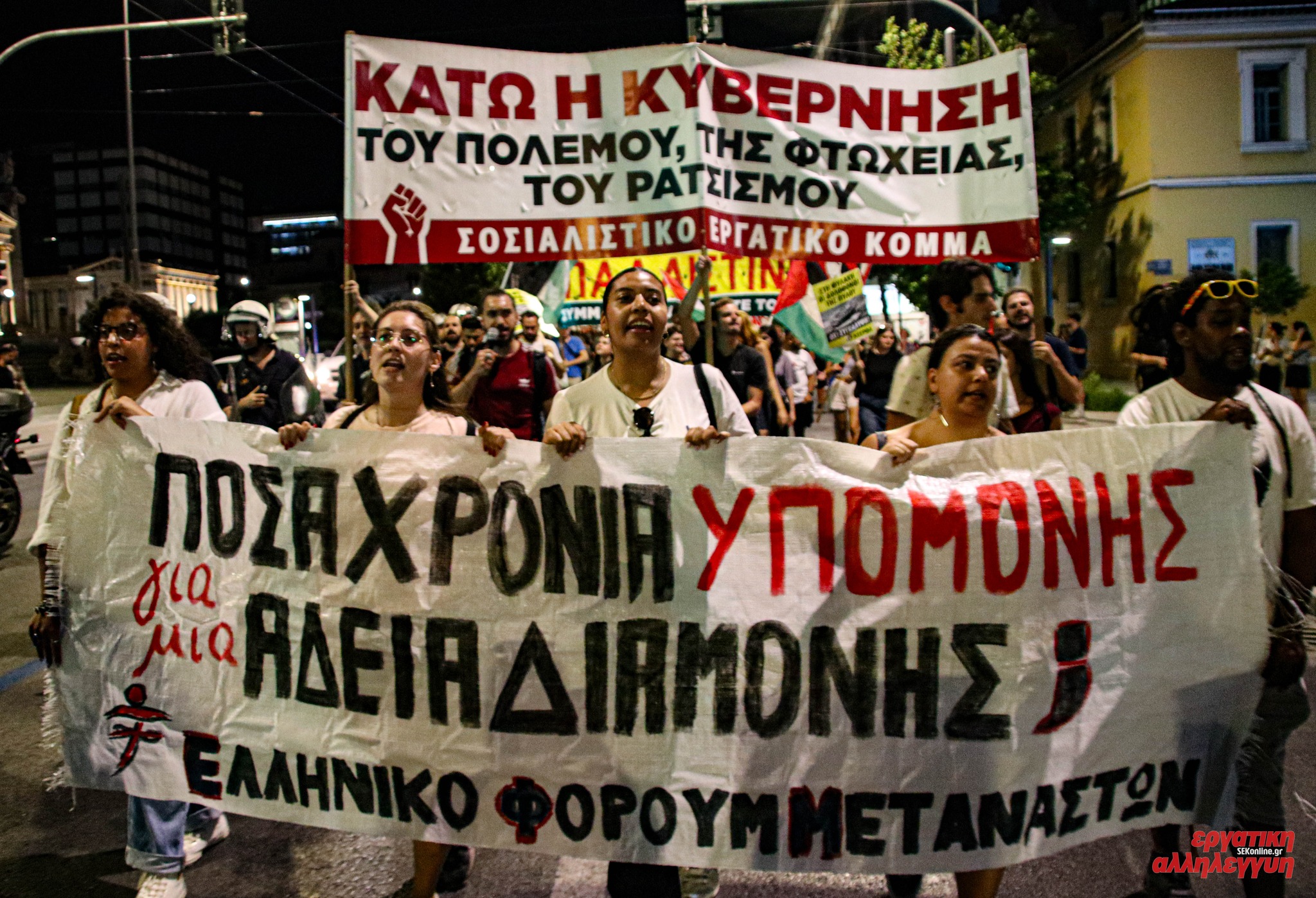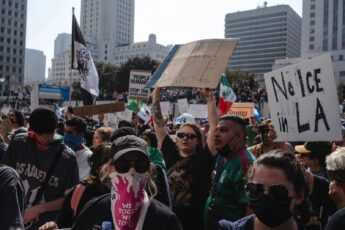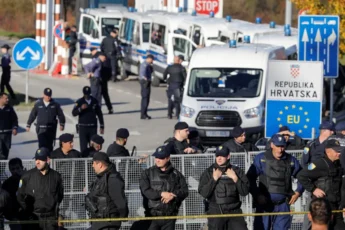
By Giannis from the Open Assembly against Pushbacks and Border Violence’ Reports
We publish a report by Giannis, a comrade active in the Open Assembly against Pushbacks and Border Violence and in the Transnational Migrants Coordination, on the intensification of institutional racism in Greece. Greece has passed a draconian law that could impose prison sentences, fines, and electronic ankle monitors on asylum seekers whose applications have been rejected and who have not left the country within 14 days. The message to migrants is meant to be clear: if their asylum claim is denied, they face two options: either prison or deportation. As Giannis explains, this measure is not entirely new. Yet while it continues a decade-long trend of increasingly racist policies, its escalation responds to a broader European climate in which, as the EU arms itself to the teeth, it “protects” itself with brutal violence from a supposed “invasion of migrants.” The deployment of military technologies and the enforcement of laws that make migrants’ lives ever harsher are, in Greece as across Europe, an integral part of the endlessly failing attempt to impose order on the disorder unleashed by the uneven movements of people, goods, and capital in the Third World War. This is why, today, the struggle against war cannot be separated from the struggle against the racism deployed to discipline the women and men who refuse to submit to the effects of war and who cross borders in search of better lives.
The Greek state has been following more and more racist policies in the last decade, especially since the power takeover by the New Democracy party. There has been a balance of policies, either as state laws or verbally or through hidden means, that promote an anti-migrant sentiment in society, while increasing the exploitation of migrant workers. The Greek state does all that in different ways: sometimes by showing off their racist agenda, other times by «putting on a human face» when their crimes are «too much» or considered illegal by European courts, and often by silencing about what is going on the borders, the detention centres, and the refugee camps – trying to cover up the reality and make people ignore how harshly Greece is treating refugees and migrants.
In the last six months, all is leaning more and more towards openly racist discourse and practices. There have been two new ministers of migration and asylum, Voridis and Plevris, who are both very racist, both having been in the past in fascist groups that did pogroms against migrants; one of them only got out of charge as minister because of an economic scandal he was involved in. In any way, they have been both continuously using terms like «illegal migrants» or «invasion by migrants» publicly, under the full cover of the Greek government.
This rhetoric could only come along with a new anti-migration law that was voted last week in the Greek parliament. This new law brings, among other things, imprisonment and hefty fines for those without asylum, now considered a crime. It increases administrative detention periods, promotes deportations, and ceases older rights, such as the residence permit after 7 years of residence in the country.
It is still unclear which measures will be applied and to what extent. Some would either cost a lot of money, be actually unrealistic, or even be considered illegal by the courts. However, they will affect – directly or indirectly – the lives of many migrants, and will, of course, show a tendency while also establishing an official racist discourse. At the same time, all this makes it even harder for migrants and solidarity groups to fight against the border and anti-migration regime created in Greece and the EU. Most importantly, it amplifies the over-exploitation of migrant workers who have even less rights and a constant fear of imprisonment or deportation if they have an asylum rejection.
However, none of these has passed through easily. There have been at least a couple of protests in Athens against the new law in the last month, while there are also ongoing struggles in camps and working places where migrants live and work. The same is true also about the implementation of the law; whether these policies will actually take place is also a matter of struggle and social-political pressure from the migrants themselves, as well as the solidarity movement. In the next period, another circle of protests, events, and connections with the camps, is on the schedule for solidarity assemblies and groups, hoping that locals and migrants will manage to block the racist outburst of the Greek state.





